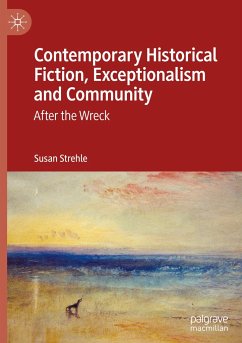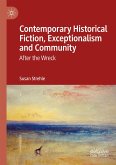This book analyzes a significant group of contemporary historical fictions that represent damaging, even catastrophic times for people and communities; written "after the wreck," they recall instructive pasts. The novels chronicle wars, slavery, racism, child abuse and genocide; they reveal damages that ensue when nations claim an exalted, exceptionalist identity and violate the human rights of their Others. In sympathy with the exiled, writers of these contemporary historical fictions create alternative communities on the state's outer fringes. These fictive communities include where the state excludes; they foreground relations of debt and obligation to the group in place of individualism, competition and private property. Rather than assimilating members to a single identity with a unified set of views, the communities open multiple possibilities for belonging. Analyzing novels from Britain, Australia and the U.S., along with additional transnational examples, Susan Strehle explores the political vision animating some contemporary historical fictions.
Bitte wählen Sie Ihr Anliegen aus.
Rechnungen
Retourenschein anfordern
Bestellstatus
Storno








